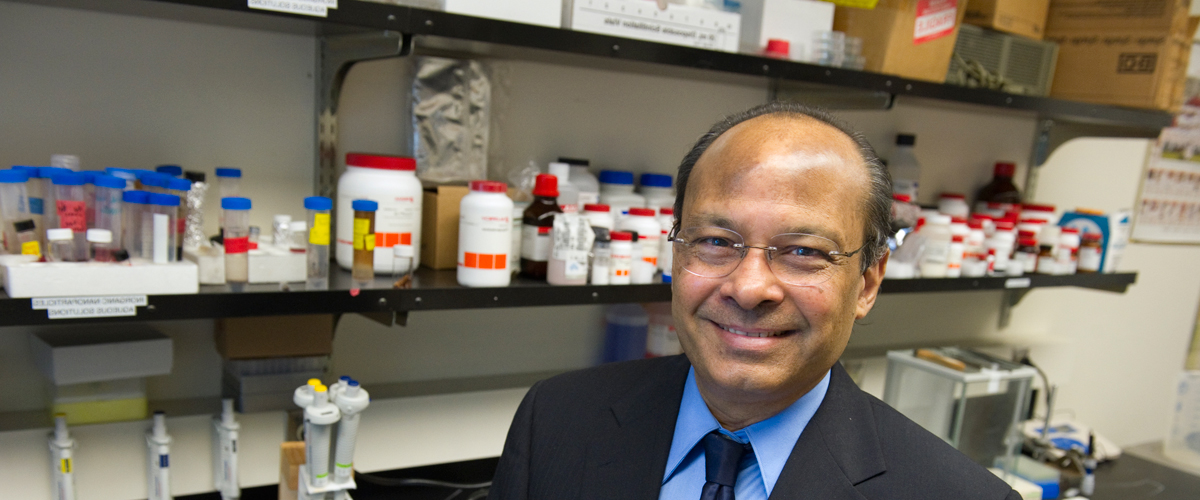by Thea Singer
Drug-delivery systems so small they are invisible to the eye. Gauze laden with particles that hasten blood clotting. New synthetic vaccines.
Those are just a few of the products emerging from the application of nanotechnology to medicine. Now Northeastern, a leader in the field, has established a means to train a diverse workforce to develop them: The Nanomedicine Academy of Minority Serving Institutions.
Nanomedicine uses nanotechnology—the science of building devices from infinitesimally small particles—for the prevention, diagnosis, and treatment of disease. Northeastern boasts several pioneers in the field, including Thomas Webster, the Art Zafiropoulo Chair in Engineering and the chair of Northeastern’s chemical engineering department, and Srinivas Sridhar, Arts and Sciences Distinguished Professor of Physics and director of Northeastern’s Electronic Materials Research Institute.
Recently the two received a $496,000 grant from the National Science Foundation to launch the academy—a scalable, interactive network that will use Web-based videoconferencing to live broadcast graduate courses and research protocols in real-time from a classroom at Northeastern to students enrolled at four partner institutions: the University of Puerto Rico Mayaguez, Tuskegee University, Morgan State University, and Florida International University.
Nanomedicine instructors will oversee each classroom of approximately 10 students at the host universities, and participants from all five schools will be able to continue learning from one another after the broadcast classroom instruction through online blogs and discussion boards.
“This is a new model of higher education,” says Sridhar, director of the academy, noting that few institutions offer training in nanomedicine and that no degree programs currently exist. Anne L. van de Ven, associate research scientist in the Department of Physics, will serve as assistant director. “We will develop the curriculum and deliver the content simultaneously to all five institutions based on the expertise we have built up at Northeastern over the past 10 years,” he adds.
Guest lecturers will complement the offerings, including top researchers from the partner institutions and other universities as well as experts from hospitals and companies around the world.
The academy expands on the work of Northeastern’s 10-year Nanomedicine and Technology Program, also directed by Sridhar, which was funded by the NSF’s Integrative Graduate Education and Research Traineeship program and the National Cancer Institute. That program has already educated 50 doctoral students in the emerging field of nanomedicine. The four courses developed through the program—Intro to Nanomedicine Science and Technology, Nanomedicine Research Techniques, Nano/Biomedical Commercialization, and Nanomedicine Seminar—will now be taught nationally through the academy.
“Our vision is to exploit this unique distance-learning model and take the academy global,” says Webster. “We want to establish official master’s and doctoral degrees in nanomedicine and add a physical-exchange component, through which students from other institutions come to Northeastern to fulfill the thesis part of their degree. We see ourselves as very much the beginning of a sea change in the field.”

